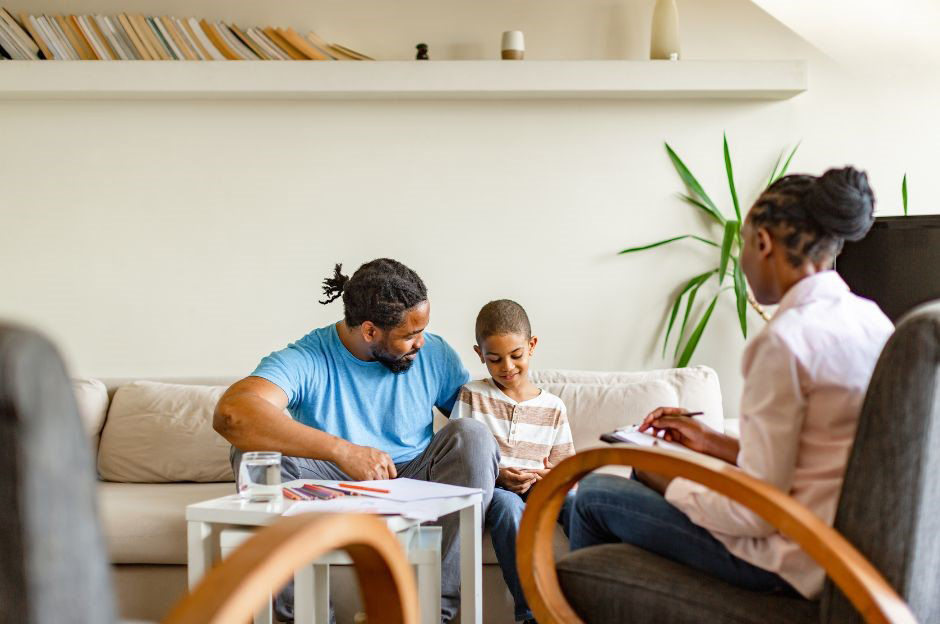Family Guidance
Family guidance is an essential component of our ABA treatment approach, focusing on equipping parents with the tools they need to support their child’s progress at home and in daily life. By actively involving families in the therapeutic process, we empower them to reinforce learned behaviors and manage challenges effectively.

Example Scenarios
- One-on-One Parent Coaching: Personalized coaching sessions where parents receive hands-on guidance from ABA professionals on how to implement interventions and manage behavior challenges.
- Group Workshops: Interactive workshops for parents and caregivers, providing opportunities to learn effective strategies, share experiences, and gain valuable insights from professionals and other families.
What to Expect
- Collaborative Approach: Parents work closely with ABA professionals to develop personalized strategies that can be applied outside of therapy sessions, ensuring consistent support for the child’s development.
- Tailored Training: Each family receives training customized to their specific needs, allowing parents to confidently implement behavior interventions that address their child’s unique challenges and goals.
How Treatment Process Works
Our treatment process is designed to ensure that each child receives a personalized, comprehensive approach to their care. From the initial assessment to continuous progress monitoring, we focus on understanding and addressing the unique needs of each child and family.
Assessment and Evaluation
The process begins with a thorough evaluation, including interviews with parents or caregivers, record reviews, and functional behavior assessments. This helps us gain a deep understanding of the child’s strengths, challenges, and goals. The evaluation is key to identifying the best course of action for each individual child.
Individualized Treatment Plan
Based on the assessment, we develop a customized ABA treatment plan tailored to the child’s specific needs and goals. The plan outlines targeted interventions, skill-building activities, and behavior management strategies designed to help the child progress in areas such as communication, social interaction, and daily living skills.
Progress Monitoring
We continuously track the child’s progress using data collection and analysis. Regular updates are shared with the family, ensuring they are informed and involved throughout the treatment process. This allows us to adjust the treatment plan as needed, ensuring the child is always on a path toward success.
Transition Planning
After two consecutive six-month intervals of ABA services, we’ll identify, review, and discuss transition objectives. We establish a timeline for adjusting services for both parent training and direct therapy, evaluated during the child’s six-month review. Additionally, we assess progress toward goals and objectives to determine the effectiveness of the current treatment in meeting the needs of both the child and the family.